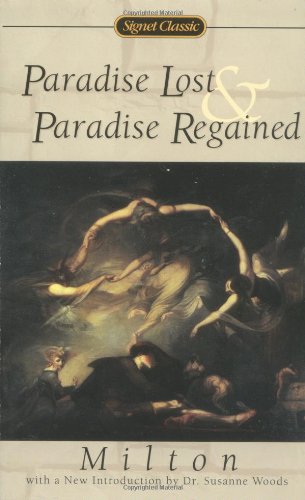Signet Classics
Paradise Lost and Paradise Regained (The Signet Classic Poetry Series)
Regular price
$7.95 USD
Regular price
Sale price
$7.95 USD
Unit price
per
Shipping calculated at checkout.
Couldn't load pickup availability
Title: Innocents Abroad
Author: Mark Twain
ISBN: 071149007953
Publisher: Signet Classics
Published: 1966
Binding: Book
Language: English
Publisher Description:
One of the most famous travel books ever written about Europe and the Holy Land by an American, "The Innocents Abroad" is Mark Twain's irreverent and incisive commentary on the "New Barbarians" 'encounter with the "Old World." Twains hilarious satire is a double-edged weapon, impaling with sharp with the chauvinistic and the cosmopolitan alike. His naive Westerner is a blustering pretender to sophistication, a too-quick convert to culture. Turning the coin, the ruins of antiquity appear but a shadow of their heralded glory; the scenery of Europe and the Holy Land dwarfs in contrast to the splendor of a Western landscape. With stunning agility Twain unconsciously uses his travelogue - as Leslie A. Fiedler points out - to search out the "archetypal differences" between Americans and Europeans - the "American identity." As Mrs. Fiedler points out in his pungent Afterword, this was a quest that was to obsess Mark Twain's literary career: "over and over, he was to return to the themes of "The Innocents Abroad..." a classic work which, without ceasing to be amusing, marks a ciritcal point in the development of our literature, and especially in our attempt through literature to find out who we Americans are."
Author: Mark Twain
ISBN: 071149007953
Publisher: Signet Classics
Published: 1966
Binding: Book
Language: English
Publisher Description:
One of the most famous travel books ever written about Europe and the Holy Land by an American, "The Innocents Abroad" is Mark Twain's irreverent and incisive commentary on the "New Barbarians" 'encounter with the "Old World." Twains hilarious satire is a double-edged weapon, impaling with sharp with the chauvinistic and the cosmopolitan alike. His naive Westerner is a blustering pretender to sophistication, a too-quick convert to culture. Turning the coin, the ruins of antiquity appear but a shadow of their heralded glory; the scenery of Europe and the Holy Land dwarfs in contrast to the splendor of a Western landscape. With stunning agility Twain unconsciously uses his travelogue - as Leslie A. Fiedler points out - to search out the "archetypal differences" between Americans and Europeans - the "American identity." As Mrs. Fiedler points out in his pungent Afterword, this was a quest that was to obsess Mark Twain's literary career: "over and over, he was to return to the themes of "The Innocents Abroad..." a classic work which, without ceasing to be amusing, marks a ciritcal point in the development of our literature, and especially in our attempt through literature to find out who we Americans are."

